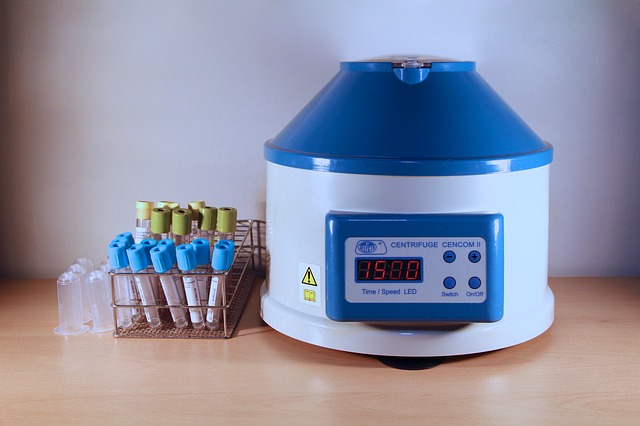
The primary factors to consider to ensure you make the right choice when picking a lab centrifuge are all included in this blog post.
A laboratory centrifuge is typically a large investment. While shopping for one, you will be looking for something that meets all of your current needs along with your potential future needs. The primary factors to consider to ensure you make the right choice when picking a lab centrifuge are all included in this blog post. Read on to learn about the key factors that go into choosing a lab centrifuge!
Maximum RCF and RPM
How quickly do you need your centrifuge to go? This may seem like a very straightforward question, but remember that RCF (relative centrifugal force) is much more critical than RPM (or revolutions per minute) when discussing the centrifuge speed. RCF (otherwise known as a G-Force) is the force being exerted on the contents of your rotor and is the main metric you should be most concerned with. RCF doesn’t depend on the RPM (the rate at which the rotor is spinning), but it also depends on the total radius of the rotor. Many manufacturer specifications will tell you the maximum values for both RCF and RPM for a given unit.
Centrifuge Rotors Available
Every centrifuge model is compatible with a limited set of accessories and rotors, so you will need to look very closely at what is available. The main things to consider for centrifuge rotors are:
- Compatible with vessels: the centrifuge you pick has to have rotor options that are compatible with your choice of vessel. You will have to think about which tube sizes and shapes you’ll be using and whether or not you will have to use PCR strips or microplates.
- Rotor Style: the primary styles available are fixed-angle and swing-out rotors, and centrifuges might have options for one or the other one, or perhaps both. Different styles may include vertical rotors, microlate rotors, and some PCR strip rotors too.
- RCF: along with noting the maximum RCF of your centrifuge, you also have to ensure your desired rotor will be able to handle the require RCF. A lot of rotors can’t operate at a centrifuge’s maximum RCF, so make sure you’re aware of the RPM/RCF limits of compatible rotors when you consider your centrifuge.
Safety Centrifuge Features
Centrifuges can post serious safety risks, but luckily, many manufacturers build in safety features to assist users and surrounding equipment. Here are some features to keep your eyes peeled for:
- Electronic lid-locks: this prevents the lid from being opened accidentally while the centrifuge is running.
- Sealed rotors: prevents leakage of bio-hazardous substances during the entire centrifugal process.
FOR ALL LAB EQUIPMENT AND LAB NEEDS, CONTACT LAB PEOPLE TODAY
The Lab People Inc. is a trusted provider of laboratory equipment, services, supplies, and rental equipment for you and your laboratory. As an ISO 17025 accredited service organization, we stand behind our services with 100% satisfaction guaranteed for all of our customers. We are here to provide you with the best lab equipment service, equipment, and supplies.
For more information about how we can assist you, visit our website, email us, or give us a call at 1-800-296-2001!
Do not forget to follow us on Facebook, Twitter, and Linkedin!
